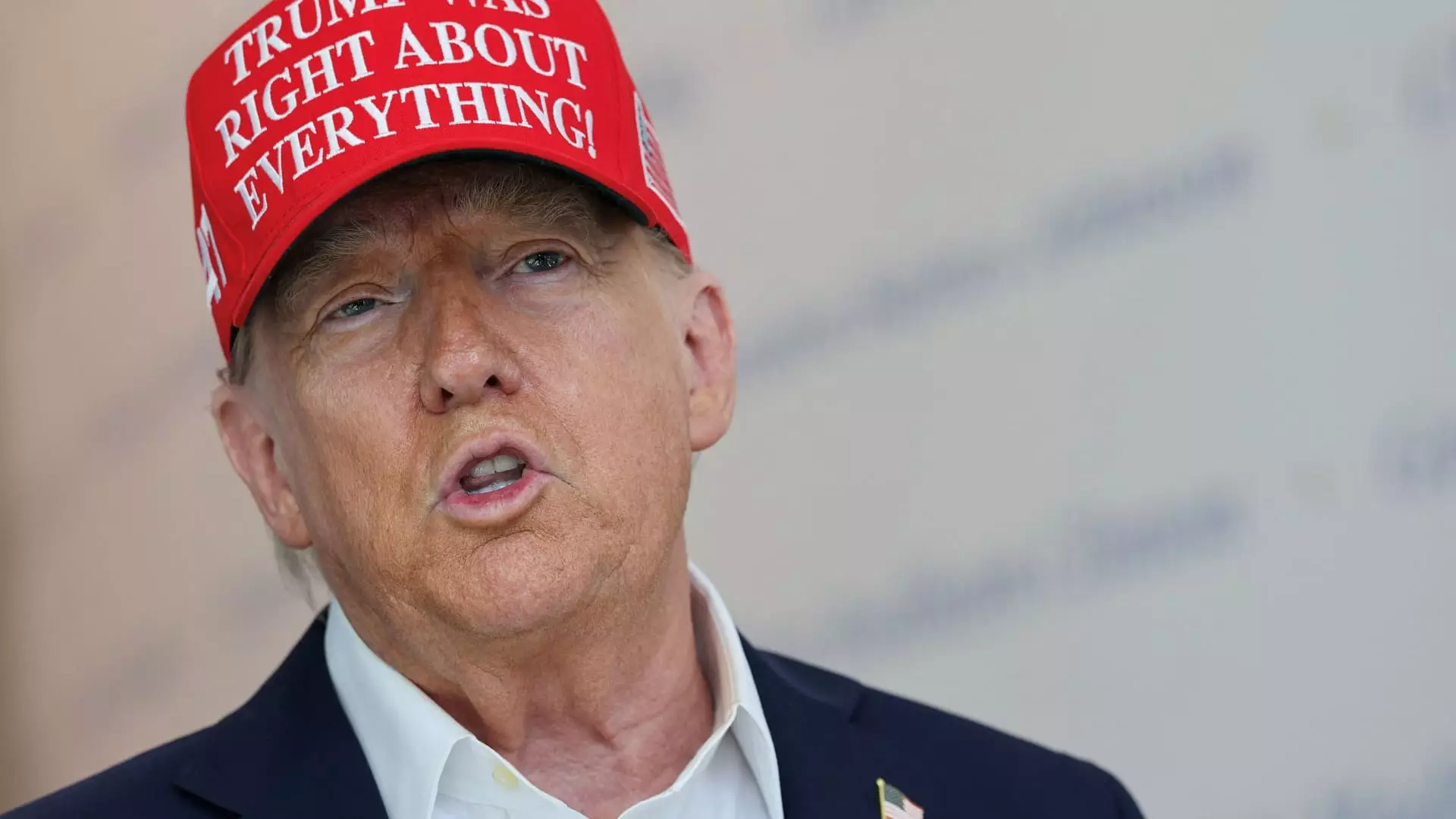The recent saber-rattling by President Donald Trump against Federal Reserve Governor Lisa Cook exemplifies a dangerous trajectory where political interference threatens the independence of our financial institutions. While some may argue that leadership positions in the Federal Reserve should be scrutinized, turning these roles into pawns in partisan battles undermines the very foundation of economic stability. The unfounded accusations and aggressive calls for resignation echo a broader trend of weaponizing federal agencies for short-term political gains. This approach disregards the importance of insulated, expert-driven decision-making that has historically shielded the economy from unpredictable swings fueled by partisan interests.
Politicians—regardless of their ideological stripe—must recognize that monetary policy is delicate. The Fed’s credibility hinges on its independence from political pressure, and attempts to threaten or replace officials based on policy disagreements threaten to destabilize markets. When a sitting president explicitly states he will fire a governor over unsubstantiated allegations, it sets a perilous precedent: that economic decisions could be swayed by partisan whims, not sober economic analysis. Markets thrive on predictability, not the tumult of political vendettas.
Allegations and Political Mobocracy: A Reflection of Short-Term Thinking
The core issue here extends beyond the individual, Lisa Cook, to a broader obsession with personal and political loyalty—factoring into an environment where misjudged accusations can be weaponized for political gain. The mortgage fraud allegations being lobbed at Cook, whether true or not, are being wielded as a means of political leverage—a distraction from the economic issues that genuinely matter: inflation, interest rates, and economic growth.
Encouragingly, Cook has stood her ground publicly, emphasizing her track record of aligning with the broader consensus of the Federal Reserve. However, allowing accusations — especially those unverified — to dictate high-level appointments or removals sets a troubling precedent. It diminishes the credibility of institutions meant to serve the long-term health of the economy and opens the floodgates for future politicization, where every policy position becomes a personal attack.
The Underlying Risks to Monetary Policy and Federal Reserve Credibility
A crucial aspect to consider is how political interference threatens the core sovereignty of the Federal Reserve’s decision-making process. The Fed’s independence has historically prevented populist whims from dictating interest rates or financial stability measures. Trump’s overt threats to fire Cook, should she refuse to resign, show an alarming willingness to compromise this independence. If such threats are materialized into actions, they could embolden other officials to succumb to political pressure, which would distort monetary policy—possibly hurtling us into inflation or recession driven by external interference rather than economic fundamentals.
Moreover, the firing of an academic and policy expert like Cook, especially while she maintains a voting record that aligns with the Fed’s majority decisions, would send shockwaves through the financial community and beyond. It risks domestic and international credibility, signaling that leadership decisions are no longer based on economic expertise but on loyalty to political figures. This jeopardizes the transparency and stability that have historically anchored the U.S. dollar’s status as the world’s reserve currency.
The Long-term Consequences of Political Encroachment
In the grander scheme, the Trump administration’s flirtation with replacing Cook is emblematic of a troubling trend where governance becomes conflated with partisan warfare. The appointment and removal of key officials should be based on merit, expertise, and the capacity to serve the national interest—not on the latest tweets or accusations. When the federal apparatus becomes a tool for political retaliation, democracy itself is compromised.
The implications extend beyond monetary policy: trust in institutions wavers, economic resilience diminishes, and the risks of a financial crisis increase. While conservatives must demand accountability from public officials, they must also guard against elevating personal vendettas over pragmatic governance. A free-market economy depends on transparent, independent institutions that resist political pressure—something that, paradoxically, requires resisting the urge to retaliate or purge based on political expediency.
The Trump administration’s confrontational stance towards Lisa Cook exemplifies a dangerous flirtation with politicized governance. The health of the economy and the stability of the financial system depend on preserving the independence of the Federal Reserve. Elected officials should focus on policies that foster economic growth and stability, rather than engaging in petty power plays that threaten the very fabric of our financial order.


Leave a Reply